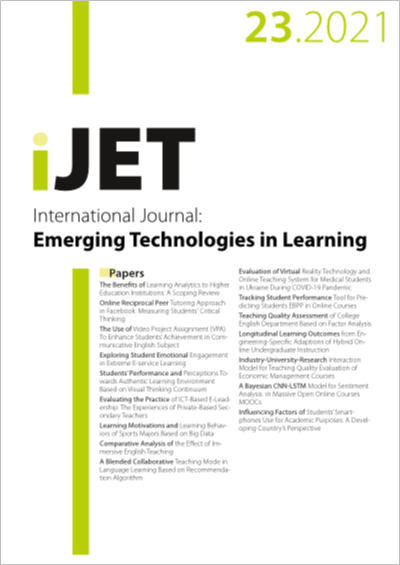Influence of Students’ Online Fragmented Learning on Learning Effect: The Mediating Effect of the Internet
DOI:
https://doi.org/10.3991/ijet.v17i01.28471Keywords:
students, online fragmented learning, learning effect, mediating effect, masking effectAbstract
With the rapid development of information network technology, the world has entered a new era of 5G communication. The mobile internet is convenient and timeliness, making it convenient for students to conduct fragmented learning. The role of fragmented learning methods in students’ classes has improved their autonomy in learning and application skills. Based on the view of constructivism knowledge, four factors of fragmented learning were proposed, which influences the learning effect, and the intermediary role of the Internet in fragmented learning on the learning effect was analyzed by using classical questionnaires. Results show that the overall Cronbach α of the questionnaire is 0.928, which indicates that the questionnaire has good reliability; the KMO value of each influencing factor is 0.918, which indicates that the questionnaire had good validity. The Internet has a partial mediating effect between the personal characteristics, learning motivation, and learning input of fragmented learning and the learning effect, and the effect of the personal characteristics is the strongest; the Internet has a masking effect on the influence of learning resources on learning effect. Conclusions are of great significance for discussing the influence of fragmented learning on college teaching under the background of “Internet+”, integrating fragmented learning, and building the culture of fragmented learning by using the Internet.
Downloads
Published
How to Cite
Issue
Section
License
Copyright (c) 2021 Yu Song, Tao Huang

This work is licensed under a Creative Commons Attribution 4.0 International License.



